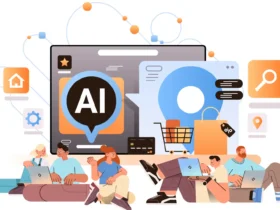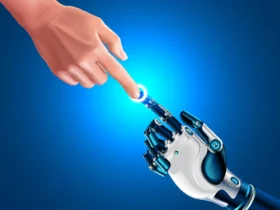Therapy has been a cornerstone of mental health treatment for decades, and as our understanding of mental health conditions evolves, so do the technologies we use to support treatment. With the recent advancements in AI, it’s no surprise that AI-powered mental health tools are beginning to make their way into mainstream practice.
Beyond the in-session therapeutic work, AI offers a range of possibilities for streamlining mental health services. From assisting therapists with intake assessments and administrative tasks to supporting patients in moments of crisis, AI has the potential to enhance the mental health field in meaningful ways. In this article, we’ll explore some of the most promising applications of AI in mental health diagnostics, therapy tools, and crisis intervention.
Note: The use of AI in mental health is still an emerging field, and it’s essential for therapists to use these tools ethically, ensuring patient privacy and autonomy. Regulatory bodies also have a critical role to play in overseeing how AI impacts the patient-therapist relationship and therapeutic outcomes.
How is AI Transforming Mental Health Diagnostics? </h2> <h3> Crisis Management with Virtual Chatbots
Crisis management is a critical aspect of mental health care, and one of the biggest challenges facing the mental health community is the lack of accessible resources during crises. Many people in distress struggle to find immediate support when they need it most.
While AI cannot and should not replace a trained therapist, it can provide initial crisis support by offering a safe space for individuals to express what they’re going through and guiding them toward appropriate resources. AI chatbots, like Woebot, are designed to deliver instant, chat-based mental health support to users, providing a listening ear and actionable guidance. These AI companions can be particularly valuable in bridging gaps in crisis care, offering support at times when human help may not be readily available.
Early Symptom Detection and Diagnostic Support
AI has significant potential around mental health diagnostics—not as a replacement for professional diagnosis, but as a supplement to a therapist’s expertise. Researchers and practitioners are exploring ways AI can assist in the early detection of mental health symptoms, which may help therapists identify conditions more efficiently.
For example, AI-based intake assessments and conversational surveys could allow patients to share their experiences in a more interactive, less clinical format than traditional forms. This data can help therapists by highlighting symptoms or patterns that may warrant further investigation, aiding in the initial diagnostic process. AI’s ability to analyse large datasets may also allow it to spot correlations and trends that could be valuable in understanding complex mental health conditions.
Regimen Personalisation and Treatment Analysis
AI therapy tools are particularly strong in pattern recognition and data analysis, making them well-suited to tracking treatment progress and personalising care plans. By analysing trends over time, AI can help therapists gauge how well a patient is responding to their treatment and suggest potential adjustments.
For example, AI could identify subtle shifts in mood or behaviour that indicate a need to adapt the treatment approach. While the therapist remains the decision-maker, AI can provide data-driven insights that help tailor treatment plans more precisely to each patient’s needs. This kind of personalised care can enhance the effectiveness of therapy, enabling practitioners to offer more targeted and responsive interventions.
The Future of AI in Mental Health
AI is already reshaping mental health care, but it is not a replacement for the human connection at the heart of therapy. Rather than a “silver bullet,” AI serves as a powerful assistant, helping mental health professionals reduce time spent on administrative tasks and focus more on personalised, meaningful interactions with their patients.
As AI therapy tools continue to develop, they will likely play an even greater role in mental health diagnostics and treatment. If implemented thoughtfully and ethically, these tools could make therapy more accessible, efficient, and effective for both therapists and patients.
In the years ahead, AI will likely become a valuable partner in mental health care, enabling therapists to deliver more precise and customised treatment while maintaining the human empathy that is essential to healing. As AI’s role in mental health expands, it has the potential to transform the field for the better—providing support to therapists, empowering patients, and ultimately contributing to improved mental health outcomes.









Leave a Reply